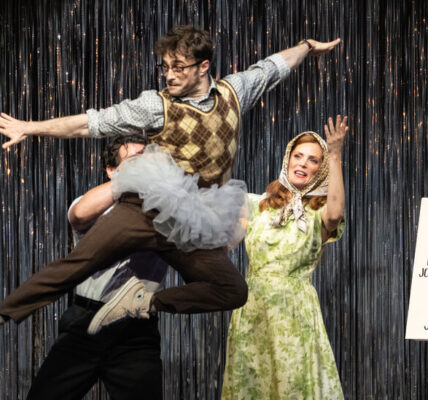And Tines, at nearly 6 feet 3 inches with a muscular build, has challenged notions of what a classical star should look like. He wore a sleeveless all-white robe dress and Prada boots for the role of Jesus in Bach’s “St. Matthew Passion” with the New York Philharmonic last year. (“Jesus should wear Prada,” he wrote on Instagram.) At the Grammys, he wore a sweater-dress inspired by his grandmother and decorated his shoes with earrings, as she often did before going to church.
As a gay Black man from Northern Virginia, Tines said he has often felt like an outsider. At a Lincoln Center cafe, he looked across the street to the Juilliard School, his alma mater. He began to recount his struggles there, describing how he felt misunderstood by teachers and colleagues because he could not relate to the standard vocal repertoire.
“I had to find my own path,” he said. “I had to find myself in other ways.”
Tines grew up in Fauquier County, Va., about an hour and a half outside of Washington, where his family has lived for generations. As a child, he was acutely aware of the racial and economic divisions in his hometown; he once said he “grew up in a Ralph Lauren ad on slave burial ground.” He was raised primarily by his grandparents. (His grandmother still calls at least twice a day.)
He grew up singing at a Baptist church in Orlean, Va. His grandfather, who served in the military and rose to become a chief warrant officer at the Pentagon, had served as music director at several churches in the area. But Tines’s real passion was for the violin, which he played in youth ensembles, rising to the rank of concertmaster. His grandparents encouraged him to give singing a try, and in high school he won leading roles in productions of “Ragtime” and “Les Misérables.”
He went to college at Harvard, where he studied sociology. It was not until his senior year, when he took part in a production of Stravinsky’s opera “The Rake’s Progress,” that he began to think more seriously about opera.
At Juilliard, where he enrolled for graduate studies, he said he felt dehumanized because people were seen “for what they can do, as opposed to who they are.” He also felt a disconnect with the core repertoire — works like Schubert’s “Winterreise,” which depicts a man dealing with the rejection of a woman he loves.




